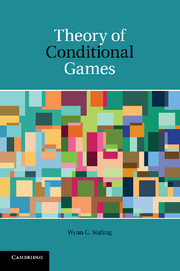5 - Uncertainty
Published online by Cambridge University Press: 05 January 2012
Summary
Probability theory was to native good sense what a telescope or spectacles were to the naked eye: a mechanical extension designed along the same basic principles as the original.
– Gerd Gigerenzer et al. The Empire of Chance (Cambridge University Press, 1989)The question of how to make choices in the presence of uncertainty that arises because of the lack of complete information has captured the interest of decision theorists for centuries. The approach to dealing with such situations depends on how the decision maker characterizes the uncertainty. With a situation of complete ignorance, it is difficult to proceed. Consequently, much effort has been devoted to devising rules to govern the way inferences are made. As put by Gigerenzer et al. (1989), “Although these rules cannot eliminate the uncertainty intrinsic to the situation, they do eliminate the uncertainty of opinion about how to weigh what information one has, and therefore, about what course of action to pursue” (p. 286). The approach that has most widely influenced science and economics is to comply with the certainty-equivalence hypothesis: Given a decision problem whose outcome is uncertain, it is assumed that a payoff value exists such that the decision maker is indifferent between receiving that payoff for certain and the uncertain outcome. A decision maker who complies with the certainty-equivalence hypothesis will then act as if the certainty-equivalent payoff were deterministically defined.
- Type
- Chapter
- Information
- Theory of Conditional Games , pp. 126 - 138Publisher: Cambridge University PressPrint publication year: 2011



